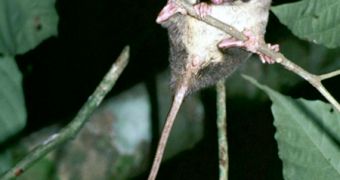Unlike humans, who have to pay the price for drinking too much in the evening the next morning, pen-tailed tree shrews and a few species of other animals that consume small to large amounts of alcoholic nectar on a regular basis do not feel the effects of their habit. This is because these species have evolved to a stage where they tolerate alcohol, and how they accomplished such a feat could point out to the source of some of the drinking problems in humans.
Shrews, including the pen-tailed tree ones (Ptilocercus lowii), are the smallest known mammals and are related to the ancestor of primates and humans, of course. They live in the jungles of Southeast Asia and generally feed on the nectar of a plant known as the bertam palm. "The palms smelled like a brewery," said Frank Wiens of the University of Bayreuth, Germany, about the smell released by this plant.
Following his odd observation, Wiens started to study the bertam palm based on a hunch that some of the animals feeding on its nectar were in fact consuming large amounts of alcohol. The results of his study showed that the nectar of the tree was fermented by yeast cells found in the flowers, giving it one of the highest concentrations of alcohol occurring naturally in plants, meaning up to 3.8 percent. Later on, research revealed that pen-tailed tree shrews and another six species of animals feed on this nectar for up to 138 minutes over the night.
Wiens then calculated that the amount of alcohol nectar consumed by a pen-tailed tree shrew would enable it to reach a blood alcohol level of 1.4 grams per kilogram of body weight once every three days, which is roughly equivalent to a person drinking nine glasses of wine in a 12-hour period. However, when they checked the levels of alcohol by-products, the research team realized that the amount of ethyl glucuronide hardly surpassed 1 nanogram per milligram of hair, nearly 60 times the amount considered to be associated with excessive drinking in humans.
As it turns out, pen-tailed tree shrews are much more efficient at breaking down alcohol, but why this happens remains unclear, especially considering that they are closely related to some of the first primates. Some researchers even suggested that alcohol consumption was not characteristic to the whole species and could be a phenomenon that appeared relatively recently. "This speaks against the current paradigm," Wiens says.
"I hope this breaks the alcohol profession out of the 'rats-drinking-liquid-ethanol model.' ...That's not going on in the real world," said physiologist Robert Dudley of the University of California regarding the current studies related to human alcohol drinking which experiment on rats, which are not what you'd call heavy drinkers, unlike pen-tailed tree shrews.

 14 DAY TRIAL //
14 DAY TRIAL //